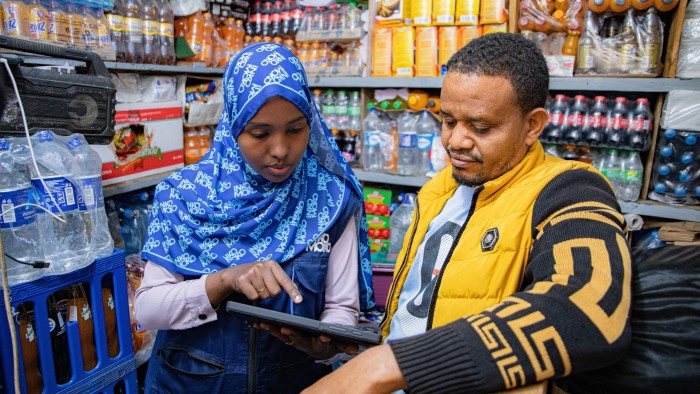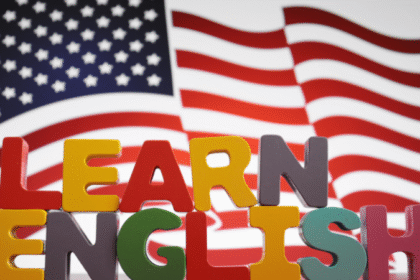When the rains come, Gore Ladu’s town of Mangala on the banks of the Nile in South Sudan is transformed into an island. Anyone without a boat is at risk of being stranded by the floods.
Ladu has turned this seasonal threat into an opportunity. With the help of two loans worth $9,240 from the Rwanda-based microfinance start-up Inkomoko, he scaled up his business making canoes and has helped to keep life flowing for his neighbours in Mangala.
Inkomoko was dreamt up in 2012 by two US entrepreneurs, Julienne Oyler, its chief executive, and Sara Leedom, the chief operating officer, when they were travelling across Africa after leaving jobs in Silicon Valley.
The company, which is the fastest growing in east Africa in this year’s FT-Statista rankings and eighth overall, approaches risk in a novel way, providing financial training pro bono in lieu of the collateral most other microfinance companies require.
A quarter of a century ago, the African pioneers of mobile telephony proved there was a vast consumer market on the continent waiting to be tapped. In a similar vein, Inkomoko is demonstrating — by investing in people, many of them refugees, with no previous access to the formal banking sector — that there are entrepreneurs waiting to be unleashed and profit made in the most overlooked of places.
“Where other people see a refugee camp, we see an ecosystem of buyers and sellers and people with resilience and skills,” says Nick Daniels, the group’s director of development.
Inkomoko recorded compound annual growth of 211 per cent from 2020 to 2023, increasing revenues from $160,000 to $3.99mn over the period. In the five African countries where the group operates — Kenya, Rwanda, Ethiopia, Chad and South Sudan — more than 50 per cent of its clients are refugees or people internally displaced by conflict.
Ladu, who sells his canoes for about $250 each, is neither but Inkomoko has allowed him to navigate one of Africa’s most challenging business environments in the newest internationally recognised country in the world.
Before access to low-cost loans allowed him to hire 20 extra workers and stock up on materials and tools, he was eking a living by crafting the boats alone with scrap timber and glue. Each canoe provides a lifeline during the rains, he explains in a video call from Mangala, allowing traders to reach markets, families to cross rivers and schoolchildren to get to school.
“Since Inkomoko came I have been able to supply every customer who comes in . . . and even have surplus,” he says, adding that his own life had been transformed by the increased productivity of his business. “Life for all the family is better; the children are happy and I am employing people so I am more popular in the community.”
Small and medium-sized enterprises (SMEs) account for about 90 per cent of all businesses and employ 80 per cent of workers in Africa, according to the World Bank. But it points out that many struggle for access to financing, leaving an annual funding gap of $331bn.
Inkomoko’s educational approach to help plug that gap is designed to minimise defaults with repayments running at 97 per cent of the loan book, according to its own data.
Before making a loan, usually at more affordable rates than the banks and with less rigid requirements, the company first helps customers to develop the skills, resources and networks they need to grow their businesses.

This includes training on bookkeeping, customer services, inventory and tax management, and advice on business plans. It also helps connect clients, many of whom are restricted to the refugee camps they live in, with supply chains and local markets.
“We de-risk our loans through training,” says Daniels, providing what he calls a kind of “McKinsey service to micro-entrepreneurs”.
Inkomoko has helped more than 100,000 businesses to date, with loans ranging from $250 to $50,000. It is now looking to expand in west and central Africa and grow its client base to 550,000 by 2030.
“The goal is to create a model that attracts the interest of banks and corporations,” says Daniels, adding in reference to one of Kenya’s largest lenders that “ultimately we believe we will hand over our loan books to the likes of Equity Bank.”
Muktar Mohamed’s business in the town of Jigjiga in eastern Ethiopia, provides a powerful case in point. The 47-year-old, who has six children, left a long-standing government job to open a café because he was struggling to support his growing family on the meagre salary he earned.
But he says he initially struggled due to lack of business experience, mounting debt and, most of all, the frequent power cuts that would force him to close and his fresh produce to spoil without refrigeration.
It is a familiar tale for many entrepreneurs in Ethiopia, who struggle to access the financing they need to sustain their businesses. Inkomoko has facilitated $1.5mn in loans to 1,400 entrepreneurs in the country.
Mohamed heard about the company by word of mouth. Working with a bank and other local microfinance companies, Inkomoko arranged a $3,500 loan so he could buy a generator.
Now his Aways Café remains open when power cuts force others to shut up shop. Boosted by two other ventures he has launched since, monthly revenues have risen 81 per cent to $15,800, and he employs 21 staff. “My café doesn’t just serve food anymore,” he says by phone from Jigjiga. “It sits at the heart of the community”, he adds, providing for all his family and everyone else who works there.
The rationale for this type of lending has been reinforced by the accelerated decline of western aid budgets, particularly the Trump administration’s shutdown of USAID.
Refugees in particular, can no longer rely on humanitarian agencies to sustain their needs, says Daniels. “They need to supplement their incomes,” he adds. “That is really the raison d’être of what we do.”




